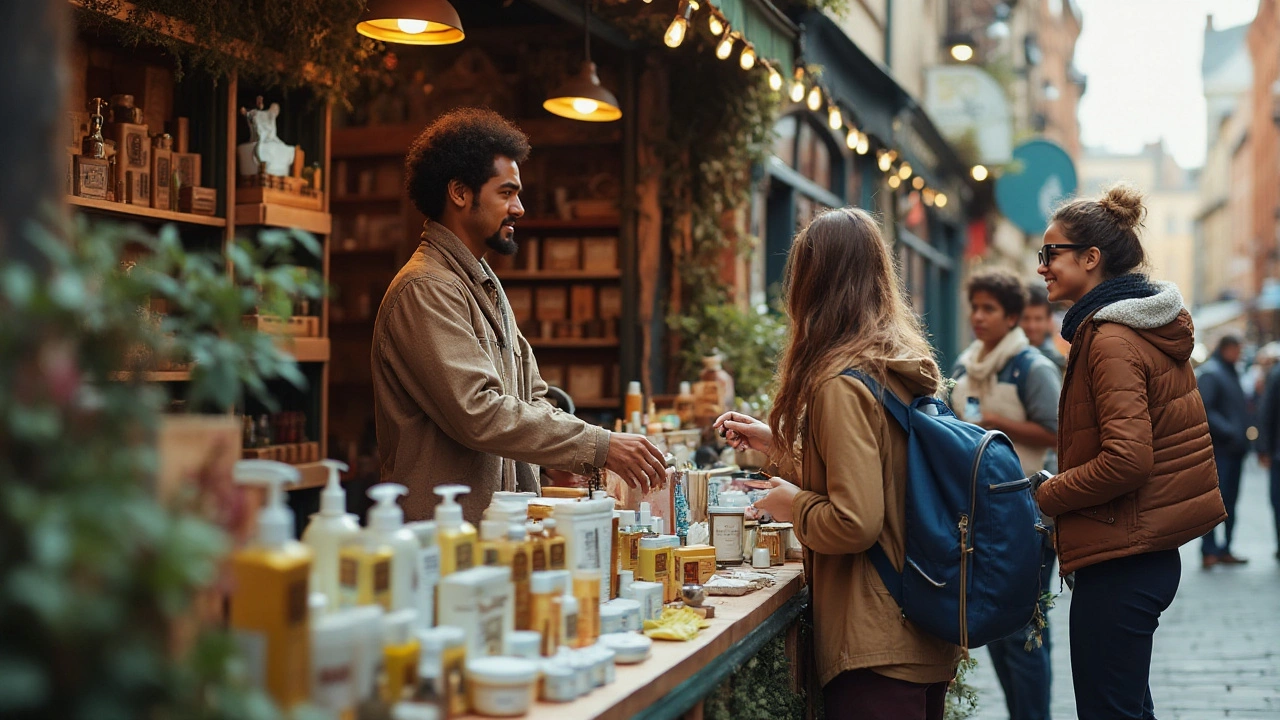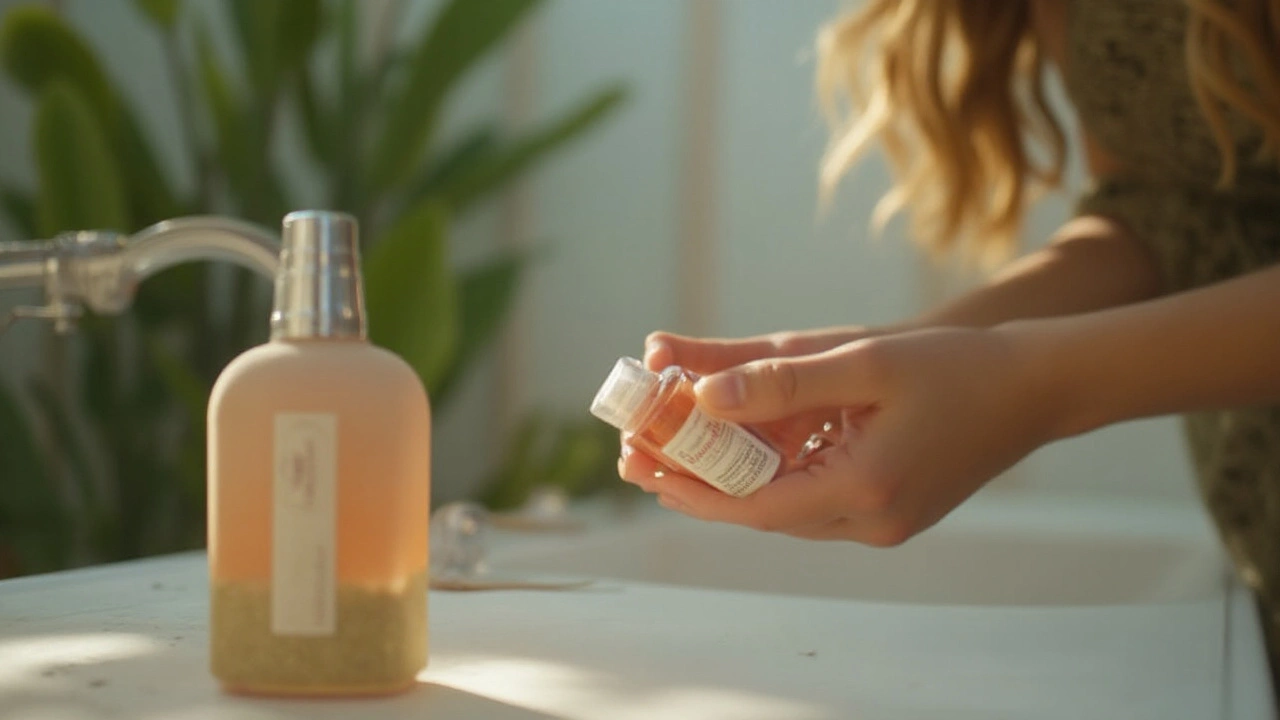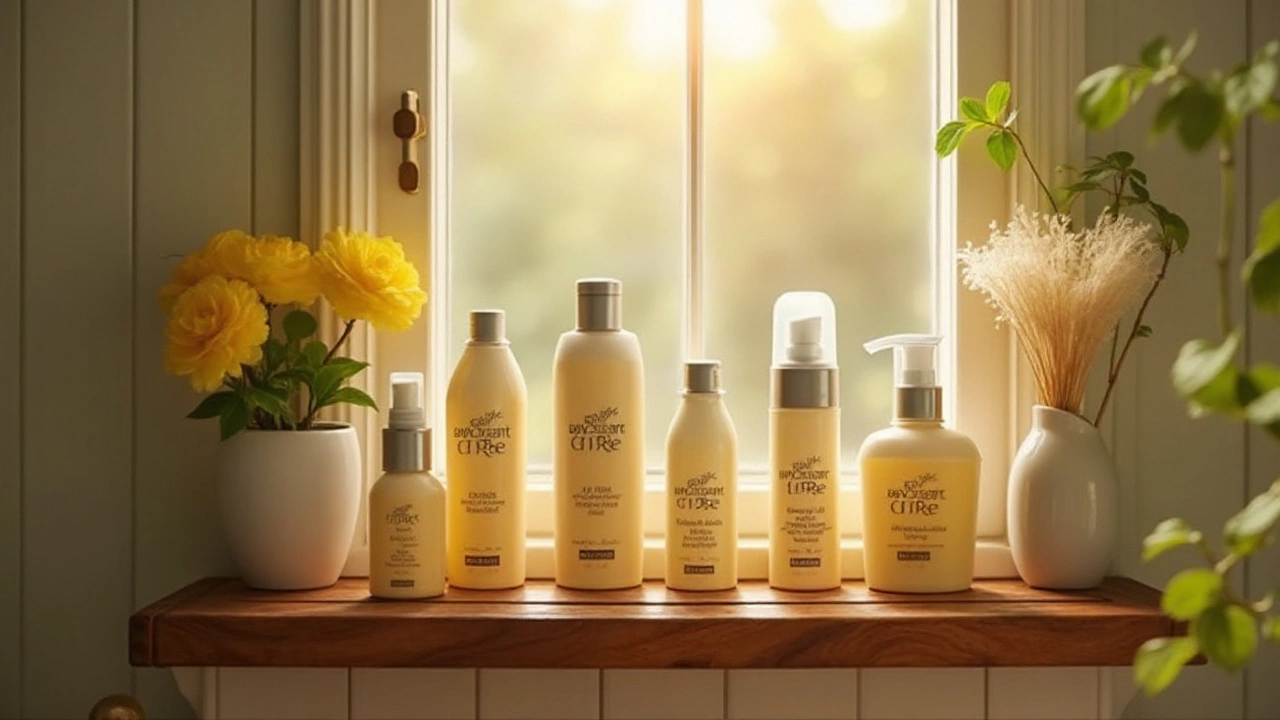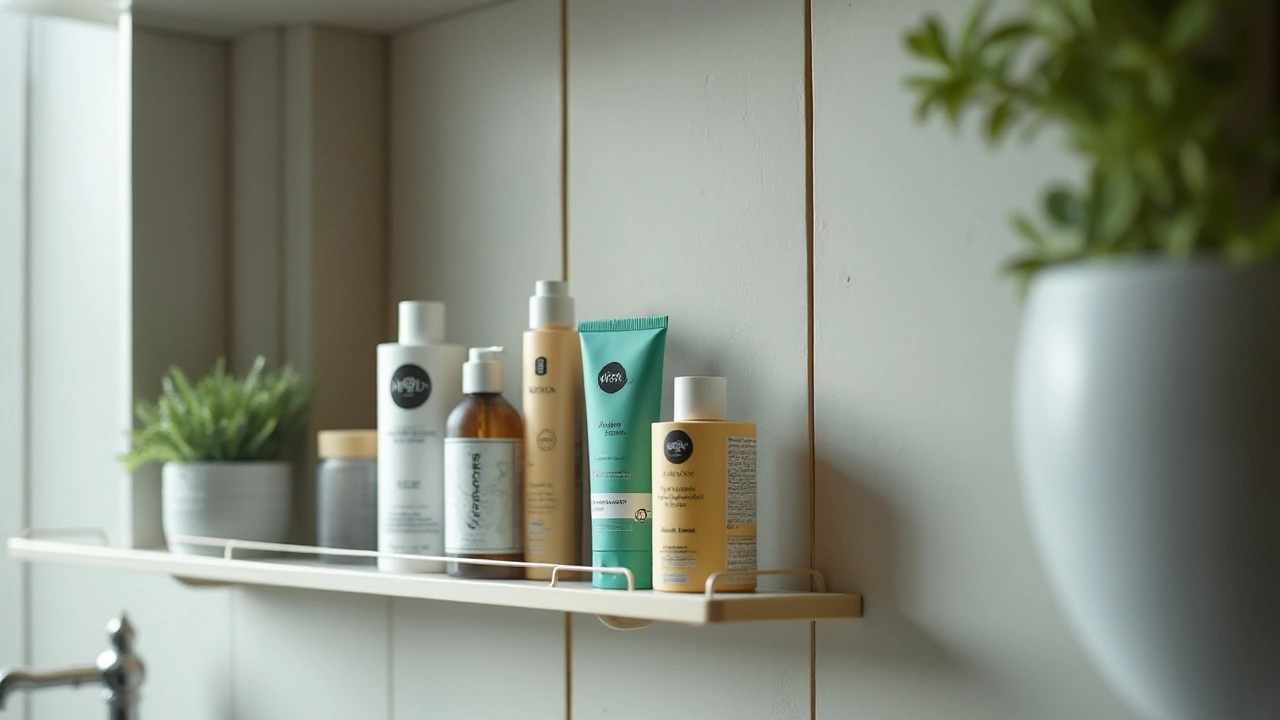The world of cosmetics and toiletries is a dazzling spectrum of choices, where innovation meets personal care. In 2025, several brands have captured the beauty industry's pulse, becoming household favorites for a variety of reasons. Whether it's through pioneering sustainable practices, offering luxurious experiences, or providing high-quality yet affordable solutions, these brands have carved their own unique niches.
This journey guides you through some of the top-tier toiletries brands that are making waves this year. As we explore each section, you'll uncover how these brands not only satisfy basic needs but also elevate them, adding a touch of luxury or eco-friendly consciousness to everyday routines. Let us delve deeper and discover what makes these brands stand out in an ever-evolving market.
- Leading Global Brands
- Sustainable and Organic Options
- Budget-Friendly Alternatives
- Emerging Innovators
Leading Global Brands
In the realm of cosmetics and toiletries, certain names have achieved international acclaim, representing not just products but entire experiences that resonate with users from diverse backgrounds. These top brands often possess a compelling combination of rich history, continuous innovation, and a deep understanding of consumer needs, setting a benchmark for quality and excellence. One cannot discuss leading global cosmetics brands without mentioning giants like L'Oreal, Procter & Gamble, and Johnson & Johnson. These companies have dominated the toiletries sector for years, creating Legendary products loved across generations.
L'Oreal, for instance, stands tall with its stellar commitment to research and innovation. With an R&D budget that surpasses many in the industry, L'Oreal has been at the forefront of developing groundbreaking skincare and color cosmetics. Their dedication to keeping up with trends means products like their Revitalift series continue to feature cutting-edge anti-aging ingredients. Meanwhile, Procter & Gamble, known for its label Pantene, has captivated audiences with science-backed formulas that promise hair miracles. These brands manage to anchor their product lines not solely in efficacy but have begun venturing into environmentally conscious spaces, highlighting the push for sustainability across the spectrum.
In the competitive world of toiletries, Unilever's Dove also stands out by doing things differently. Dove's commitment to embracing body positivity and combating unrealistic beauty standards has struck a chord worldwide. Their 'Real Beauty' campaign is more than marketing; it's a social movement. According to a study, this successful campaign increased sales by over 20% in the year following its launch. Such initiatives have ensured that Dove remains not just a soap manufacturer but a flagship brand for everyone seeking authenticity.
"The success of brands today relies heavily on their ability to connect emotionally with their audience. Dove mastered this through genuine messaging and unwavering dedication to the cause," remarks industry expert, Amanda Lehman.
Shiseido, an Eastern counterpart with a rich heritage dating back to the 1800s, exhibits the sheer power of tradition blended with modern innovations. Their skin creams and lotions reflect an amalgamation of scientific research and age-old secrets, proving that balance between East and West appeals universally. This blend extends to their packaging, which equally emphasizes elegance and sustainability. As Asian beauty products penetrate the global market, Shiseido proudly stands as a cultural ambassador, offering formulas that suit multiple skin types and climates. In a nutshell, these global leaders remind us why the world of cosmetics remains captivating and ever-evolving.
In essence, the success of leading cosmetics brands hinges on their ability to keep pace with evolving consumer expectations. As people become more selective about the products they endorse, these brands must continuously innovate while maintaining trust. It's this dance between heritage and modernity, quality and accessibility that defines their place in our daily lives, reaffirming the role of cosmetics in shaping personal identity and confidence.

Sustainable and Organic Options
In recent years, the beauty industry has witnessed a profound shift towards sustainability and organic products, with consumers gravitating towards brands that prioritize eco-friendly practices. The demand for cosmetics brands that embrace sustainable and organic methods reflects a deeper consciousness about environmental impact and personal health. Brands like Burt's Bees and Lush have led the charge, offering products crafted from natural ingredients and packaged using recyclable materials. Companies are moving beyond mere compliance to truly embedding sustainability into their core values, ensuring that every step, from sourcing to packaging, is gentle on our planet.
Today, an increasing number of beauty enthusiasts actively seek out toiletries that promise a minimal ecological footprint, without compromising on quality or efficacy. The allure of these products lies in their ability to provide results while maintaining transparency about what goes into their formulations. Many brands proudly showcase their ingredient lists, helping consumers make informed choices. Labels now indicate not just the source but also the journey these ingredients undertake before becoming a part of our daily routines. As awareness spreads, significant innovations like waterless beauty products and biodegradable packaging are becoming mainstream, marking a positive trend in this industry.
"Sustainability in beauty is not just a trend, but a necessary evolution," states Jane Doe, a top environmental analyst in the field. "It's about making responsible choices accessible and acceptable for both the brand and the consumer."
For those who are budget-conscious but still wish to uphold their environmental ethos, brands are offering affordable alternatives without compromising on sustainability. Products from companies like The Body Shop present accessible options for all, driving home the point that sustainable living need not be a luxury. Additionally, the rise of refill stations and bulk buying options echoes a return to simpler, more responsible consumption patterns, reducing packaging waste and encouraging long-term commitments to eco-friendly choices.
Supporting toiletries brands that focus on organic and sustainable products is more than just a consumer preference; it's a conscious lifestyle choice that showcases an individual's commitment to the planet. As the beauty industry continues to evolve, the onus is on consumers to champion brands that align with ethical and sustainable values. This trend underscores a growing understanding that every small step towards sustainability contributes significantly to the greater picture of global environmental health.
| Brand | Key Focus |
|---|---|
| Burt's Bees | Natural ingredients and recyclable packaging |
| Lush | Handmade, ethically sourced ingredients |
| The Body Shop | Affordable access to sustainable products |

Budget-Friendly Alternatives
When it comes to personal care, not everyone has the luxury of splurging on high-end cosmetics brands. Yet, affordability doesn't have to mean compromising on quality. The cosmetics industry has seen a surge of budget-friendly options that provide effective solutions without burning a hole in your pocket. These brands have mastered the art of balancing quality with cost, ensuring that personal care remains accessible to all. Let's explore some of these top budget-friendly toiletries that have made significant impressions on both shelves and consumers alike.
One of the standout names in the realm of affordable beauty products is e.l.f. Cosmetics. Known for their excellent range of makeup and skincare products, they have remained steadfast in their promise of providing great quality at unbeatable prices. Another notable mention is CeraVe, renowned for its dermatologist-developed skincare range. CeraVe products are often recommended for individuals with sensitive skin, as they are packed with essential ceramides and are particularly gentle.
The impact of these budget-friendly alternatives is not just a testament to their pricing strategy, but also to their commitment to inclusivity. Great personal care products should not be a privilege; rather, they should be a standard across various economic demographics. All in all, brands like these focus on creating quality experiences without the premium price tag attached. A 2023 survey indicated that over 70% of consumers believe affordability plays a crucial role in their brand loyalty when it comes to buying toiletries.
Another brand worth mentioning is The Ordinary, famed for its affordable take on active ingredients that often command higher price points in the luxury market. From retinols to hyaluronic acid serums, they offer a variety that caters to enhancing natural beauty without the splurge. As someone aptly said in a recent interview with Vogue:
"Affordability opens the door to experimentation, and these brands are leading the path to democratizing beauty access."They’ve transparently detailed the contents of their formulations, which has added to their credibility and consumer trust.
For many individuals, budget-friendly options have opened the door to experimenting with new beauty regimes and discovering what works best for their personal care routine. Brands like NYX Professional Makeup provide a diverse palette of colors and textures that invite creativity without being burdened by costs. This democratization of beauty products challenges the notion that low cost doesn't equate to high effectivity, leading consumers to discover products that are both friendly to their skin and their wallet. Toiletries have become more than just daily essentials; they are part of a larger lifestyle ethos. The availability of top-tier quality through budget-friendly brands ensures that quality beauty care is an inclusive facet of life, allowing everyone the opportunity to step confidently into their personal care routines. Whether it's through tried-and-true drugstore favorites or emerging indie brands, these affordable options affirm that you don't need to sacrifice quality for cost.

Emerging Innovators
In the vast landscape of beauty products, a new generation of brands is making a remarkable mark with fresh approaches and creative solutions. These emerging innovators are characterized by their flexibility, modern thinking, and a bold commitment to break away from traditional norms while embracing the evolving needs of consumers. It’s fascinating to see how these brands have stepped into the scene with groundbreaking ideas, often integrating advanced technology and novel ingredients into their cosmetics brands.
Take, for instance, the revolution brought about by brands like “GlowTech”, which was founded in 2022. This brand has been transforming skincare routines with their app-connected products that deliver personalized beauty regimens based on real-time data. Their smart cleanser, equipped with sensors to analyze skin condition, provides insights on the best treatment routine. It is no longer just about selling a product, but about delivering an intelligent beauty experience.
Another exciting entrant is “EcoSheen”, which is making waves with its commitment to sustainability without compromising on luxury. This emerging brand uses 100% recyclable packaging and is known for its innovative use of bio-based ingredients. Their standout product, a biotechnologically engineered moisturizing cream derived from algae, promises to not only hydrate but also protect the skin against urban pollution. The beauty industry is, indeed, witnessing a shift towards integrating ecological consciousness without losing the essence of indulgence.
A survey conducted by the Cosmetics Industry Association reveals that 62% of consumers are more likely to purchase from brands that promote sustainable practices. This trend has encouraged many startups to adopt green innovations to capture this conscious market segment. “Urban Glimmer,” another pioneering brand, has been at the forefront of the refill revolution, offering refillable options for customers, thereby reducing plastic waste – a concept once reserved for household items but now embraced by the beauty arena.
According to renowned beauty expert Sarah Robertson, "The vitality of any industry lies in its ability to innovate and adapt. These young brands are not only responding to what consumers want today but are also shaping expectations for the future." As these emerging innovators continue to grow, they provide a fresh perspective that challenges and reinvents the perception of what beauty products can offer.
Statistics also highlight the rise in investment for beauty tech startups, with funding exceeding $3 billion in 2024 alone, signaling solid confidence from investors in these new-age brands’ potential. It will be thrilling to watch how these companies evolve, pushing the boundaries of toiletries and cosmetics to even higher planes of personalized, ethical, and effective beauty solutions. This wave of change is only the beginning, as these innovators continue to inspire and pave the way for the future of beauty.
